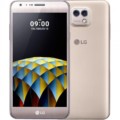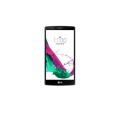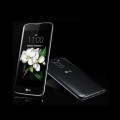LG G3


-
CPU:
-
RAM:
-
Storage:
-
Display:
-
Camera:
-
OS:
LG G3’s stunning Quad HD display supports an outstnding 538ppi, commonly used to print high-quality gallery artbooks. This delivers vibrant colors and ultra-sharp images in 2,560 x 1,440pixels, so you won’t ever notice any pixel. Plus, with its bezel-free edge to edge 5.5 inch screen, you can experience the exquisite picture quality of Quad HD right in your palm.
Laser Auto Focus
Not only does the OIS function reduce blur and shaking, the laser measures the distance to the object instantly, giving you perfect quality photos with 13MP. You can also take brighter, clearer pictures even in dark conditions. With its quick focus adjustment, you will never miss a moment you want to capture.
Dual LED Flash
Make a dramatic difference in low-light situations, and enhance your photos. With the BSI (Back Side Illuminated) sensor, the flash produces less blurry and much brighter pictures even under poor lighting conditions. Also, having two different colored lights allows the camera to produce a more natural color tone when the flash is used.
*Dual Flash provides far greater illumination, and even adds flair to the picture.
Touch & Shoot
Unnecessary icons on the screen have been eliminated to give you a clear view, and simply capture the perfect shot with just one touch.
Evolved Front Camera
Present your best image that is clearer and sharper than ever before with a larger image sensor. When you take a selfiewith the front camera, the built-in Flash UI gives you bright, lively photos. Moreover, it takes just a simple gesture to activate the selfie function.
LG G3’s smart keyboard makes typing easier and faster and helps reduce typing mistakes.
Smart Personalization – Optimized keyboard on your habit, Size adjustable
Seamless Typing – Word completion with a simple gesture
Quick Move – Quick correction with a simple gesture
LIGHTWEIGHT METALLIC DESIGN
A classic, metallic body that is light-weight, adds comfort and portability. LG’s signature rear key is refined intuitively and floating arc design make the sides much thinner, allowing easy one-hand control
Specs
General
| Announced | 01 May, 2014 |
| Released | 01 June, 2014 |
| Status | Available |
Display
| Display Type <strong>Display Technology => </strong> A number of display technologies and types used in mobile phones => TFT (Thin Film Transistor), IPS (In-Place Switching), OLED (Organic Light Emitting Diode), AMOLED (Active-Matrix Organic Light-Emitting Diode), Super AMOLED (an even advanced version of AMOLED), Resistive Touchscreen (Resistive touchscreens contain two layer of conductive material with a very small gap between them which acts as a resistance), Capacitive Touchsceen (Capacitive touchscreen technology consists of a layer of glass coated with a transparent conductor) | True HD-IPS+ LCD |
| Size | 5.9 inches |
| Resolution | 1440 x 2560 pixels |
| Pixel Density <strong>Pixel Density (PPI)</strong> is refers to the concentration of pixels on a particular display, measured in pixels per inch (ppi). Pixel density is calculated by dividing the diagonal pixel resolution of a display by its diagonal size, higher pixel density better display quality. | 534 ppi |
| Display Protection <strong>Display Protection => </strong> Gorilla Glass is a special alkali-aluminosilicate glass shield with exceptional damage resistance that helps protect mobile displays from scratches, drops, and bumps of everyday use, It is always better to go for a smartphone with Gorilla Glass for that added protection and peace of mind. | Corning Gorilla Glass 3 |
| Features | Capacitive touchscreen |
Hardware
| Chipset <strong>Chipset</strong> is a group of integrated circuits designed to perform one or a more dedicated functions, often with real time computing constraints, Popular smartphones are equipped with more advanced embedded chipsets that can do many different tasks depending on their programming. | Qualcomm MSM8975AC Snapdragon 801 |
| CPU <strong>CPU</strong> (Central Processing Unit) mostly known as processors, CPU processes instructions in order to carry out certain functions that make your device operate properly. Processors are often described as the brain of computers, smartphones and tablets, Smartphones and tablets rely on processors to carry out their every task, Processors are an incredibly important factor in selecting any type of computing device, including your smartphone. | Quad-core 2.5 GHz Krait 400 |
| GPU <strong>GPU</strong> (Graphics Processing Unit) is a single-chip processor designed to rapidly manipulate and alter memory to accelerate the creation of images in a frame buffer intended for output to a display, This includes things such as lighting effects, object transformations, and 3D motion. | Adreno 330 |
| RAM (Memory) <strong>RAM</strong> (Random Access Memory) is a type of computer memory that can be accessed randomly, any byte of memory can be accessed without touching the preceding bytes that allows information to be stored and accessed quickly from random locations. RAM is the most common type of memory found in computer systems, smartphones, tablets and other electronic devices. | 2/3 GB |
| Internal Storage <strong>Internal Storage</strong> is a data storage space (flash memory) mostly used in smartphones, tablets and other electronic devices where operating system, apps, music, photos, videos, files and other user data Is stored. | 16/32 GB |
| Card Slot <strong>Memory Card Slot</strong> is a special slot for inserting a memory card. Memory cards allow you to expand the phone's built-in memory, A memory card (sometimes called a flash memory card or a storage card) is a small storage medium used to store data such as text, pictures, audio, and video, for use on small, portable or remote computing devices such as mobile phones, mp3 players, digital cameras. | Yes, microSD, up to 128 GB |
| Sensors <strong>Sensors</strong> are electronic components that detects and responds to some type of input from the physical environment. The specific input could be light, heat, motion, moisture, pressure and location, The output is generally a signal that is converted to use in computing systems, a location sensor, such as a GPS receiver is able to detect current location of your electronic device. | Accelerometer, gyro, proximity, compass |
Battery
| Battery Type <strong>Battery Type => </strong> Cell phones run on various kinds of batteries depending on the manufacturer, phone size or shape and features. There are basically four types of cell phone batteries => Lithium Polymer, Lithium Ion, Nickel Metal Hydride and Nickel Cadmium. | Li-Ion (Lithium Ion) |
| Capacity <strong>Battery Capacity</strong> is a measure (typically in Amp-hr) of the charge stored by the battery, and is determined by the mass of active material contained in the battery. The battery capacity represents the maximum amount of energy that can be extracted from the battery under certain conditions. | 3000 mAh |
| Standby <strong>Standby Time</strong> is the total amount of time that you can leave your is fully charged, turned on and ready to send and receive calls or data transmissions before completely discharging the battery. | Up to 565 hrs (2G) / Up to 553 hrs (3G) |
| Talk Time <strong>Talk Time</strong> is the longest time that a single battery charge will last when you are constantly talking on the phone under perfect conditions, Ambient temperature and highly dependent on the cellular network environment such as the distance to the closest cell network tower. | Up to 19 hrs (2G) / Up to 21 hrs (3G) |
Camera
| Primary <strong>Camera</strong> is able to capture photographs and usually videos, The most important characteristics of a camera are the resolution (measured in megapixels), lens focus type (fixed or automatic), higher megapixel cameras are known to capture higher quality photos, but not always a good measurement of the photos quality. | 13 mega pixels |
| Camera Features | Phase detection / laser auto focus, optical image stabilization, Geo-tagging, face detection, optical video stabilization, simultaneous video and image recording, dual-video recording, stereo sound recording, panorama, HDR |
| Secondary | Yes, 2.1 MP, 1080p@30fps, video call |
| Image | 4160 x 3120 pixels |
| Video | Yes, 2160p@30fps, 1080p@60fps, 720p@120fps |
| Flash <strong>Flash Light => </strong> There is commonly two types of flash lights are used in camera mobile phones, LED Flash (LED flash offers lower power consumption with drive circuitry that takes up very little room, LEDs can be strobed faster than any other light source), Xenon Flash (xenon flash produces an extremely intense full-spectrum white light for a very short duration) | Dual-LED flash |
Design
| Type <strong>Design Type</strong> called form factor refers to a mobile phone's size, shape, and style as well as the layout and position of major components of phone. There are three major form factors seen in mobile phones => bar phones, folding phones and sliding phones. | Bar |
| Dimensions | 146.3 x 74.6 x 8.9 mm (5.76 x 2.94 x 0.35 in) |
| Weight | 149 grams (5.26 oz) |
| Colors | Metallic Black, Silk White, Shine Gold, Burgundy Red, Moon Violet |
Network
| SIM <strong>SIM</strong> (Subscriber Identity Module) is a small card that contains mobile network subscriber's account information. This allows the phone using the card to attach to a mobile network. The SIM card is most commonly associated with GSM and UMTS mobile networks. Moving a SIM card from one phone to another allows a subscriber to switch mobile phones without having to contact their mobile network carrier. SIM cards can also be used by a phone to store limited amounts of data, such as phone numbers and text messages. | Standard SIM |
Software
| Operating System <strong>OS => </strong> Every computer system run on a base software called Operating System (OS). Operating System controls all basic operations of the computer (such as smartphone, PDAs, tablet computers and other handheld devices). The Operating System allows the user to install and run third party applications (apps), apps are used to add new functionality to the device. | Android v4.4.2 (KitKat) |
| User Interface <strong>UI</strong> or user interface of a device is the look and feel of the on-screen menu system. How it works, its color scheme, how it responds to button presses, all of these things are part of the user interface. | LG Optimus UI |
Connectivity
| Bluetooth <strong>Bluetooth</strong> is a wireless communications technology for exchanging data between mobile phones, headsets, computers and other network devices over short distances without wires, Bluetooth technology was primarily designed to support simple wireless networking of personal consumer devices. | Yes, v4.0 with A2DP, LE |
| Infrared <strong>Infrared</strong> connectivity is an old wireless technology used to connect two electronic devices. It uses a beam of infrared light to transmit information and so requires direct line of sight and operates only at close range. | |
| Wi-fi <strong>Wi-Fi</strong> is a popular wireless networking technology using radio waves to provide high-speed network connections that allows devices to communicate without cords or cables, Wi-Fi is increasingly becoming the preferred mode of internet connectivity all over the world. | Wi-Fi 802.11 a/b/g/n/ac, dual-band, Wi-Fi Direct, DLNA |
| USB | microUSB v2.0 (SlimPort), USB Host, USB On-the-go |
| GPS <strong>GPS</strong> The Global Positioning System is a satellite-based radio navigation system, GPS permits users to determine their position, velocity and the time 24 hours a day, in all weather, anywhere in the world, In order to locate your position, your device or GPS receiver must have a clear view of the sky. | Yes, with A-GPS support and S-GPS, GLONASS |
| NFC <strong>NFC</strong> (Near field communication) is a set of standards for smartphones and similar devices to establish peer-to-peer radio communications with each other by touching them together or bringing them into proximity, usually no more than a few inches. |



